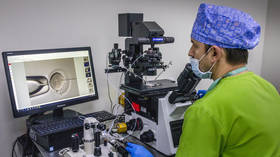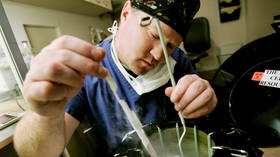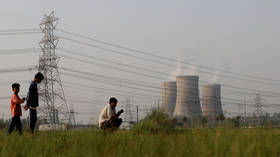US state rules frozen embryos are ‘children’

The Supreme Court of the US state of Alabama has ruled that frozen embryos created as part of fertility treatments are to be considered children under state law and are therefore subject to legislation regarding the wrongful death of a minor child.
In its ruling, Alabama’s top court said on Friday that a state law enacted in 1872 that permits parents to sue over the death of a minor “applies to all unborn children, regardless of their location.” It also cited anti-abortion terminology in the state’s constitution as being central to its judgement.
The decision follows wrongful death lawsuits brought against a fertility clinic by a group of in vitro fertilization (IVF) patients whose frozen embryos were accidentally destroyed when they were dropped on the floor at a fertility clinic in December 2020.
“Unborn children are ‘children’ under the Act, without exception based on developmental stage, physical location, or any other ancillary characteristics,” Justice Jay Mitchell wrote.
Justice Mitchell said that a prior ruling of the court had determined that fetuses killed during pregnancy fall under the terms of Alabama’s Wrongful Death of a Minor Act. He added that “extrauterine [outside of a biological uterus] children” cannot be excluded from the Act’s coverage.
The decision overruled a prior judgement by a lower court that dismissed the lawsuits because it said that frozen embryos do not fit the natural definition of a child.
The IVF patients who brought the wrongful death cases had paid for their embryos to be cryogenically frozen at an Alabama fertility clinic, according to ABC News. In December 2020, another patient gained access to the storage facility and dropped several embryos to the floor “killing them,” the ruling said.
However, Alabama Supreme Court Justice Greg Cook was the sole dissenting voice on the nine-judge panel. He argued that it was not within the court’s remit to “breathe life” into an existing statute by “updating or amending it.”
Cook added that the language of the 1872 law could not be expected to cover more modern developments like frozen embryos, and said that the judgement “almost certainly ends the creation of frozen embryos through in vitro fertilization in Alabama.”
Pro-choice campaigners have warned that the Alabama ruling could have national implications amid a push by anti-abortion campaigners to broaden the definition of human life.
“This is a natural extension of the march towards fetal personhood,” Dana Sussman of the nonprofit rights group Pregnancy Justice said, according to the Washington Post on Monday. She added that the judgement will be of “great concern” to advocates of reproductive rights and abortion care.














